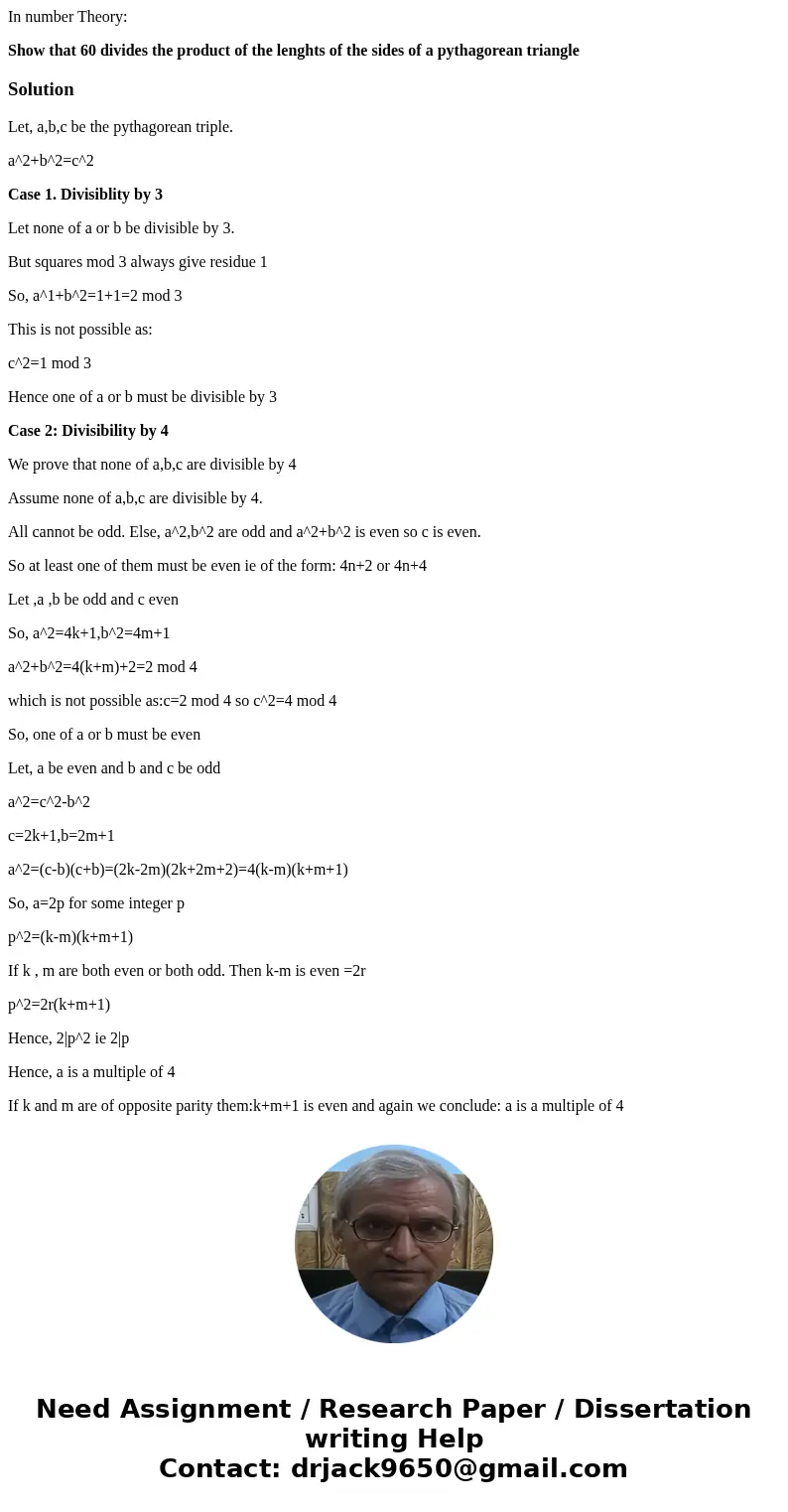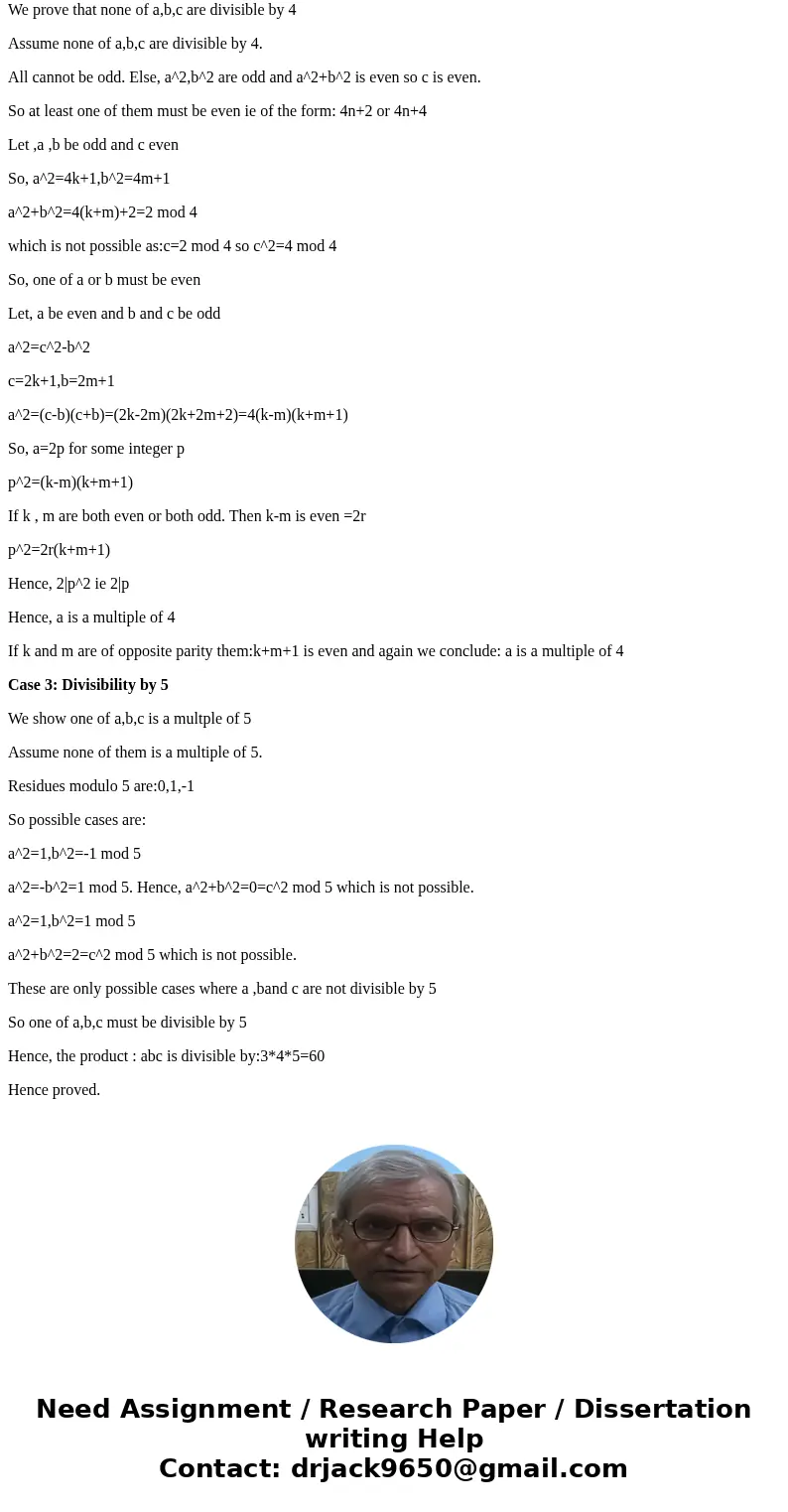In number Theory Show that 60 divides the product of the len
In number Theory:
Show that 60 divides the product of the lenghts of the sides of a pythagorean triangle
Solution
Let, a,b,c be the pythagorean triple.
a^2+b^2=c^2
Case 1. Divisiblity by 3
Let none of a or b be divisible by 3.
But squares mod 3 always give residue 1
So, a^1+b^2=1+1=2 mod 3
This is not possible as:
c^2=1 mod 3
Hence one of a or b must be divisible by 3
Case 2: Divisibility by 4
We prove that none of a,b,c are divisible by 4
Assume none of a,b,c are divisible by 4.
All cannot be odd. Else, a^2,b^2 are odd and a^2+b^2 is even so c is even.
So at least one of them must be even ie of the form: 4n+2 or 4n+4
Let ,a ,b be odd and c even
So, a^2=4k+1,b^2=4m+1
a^2+b^2=4(k+m)+2=2 mod 4
which is not possible as:c=2 mod 4 so c^2=4 mod 4
So, one of a or b must be even
Let, a be even and b and c be odd
a^2=c^2-b^2
c=2k+1,b=2m+1
a^2=(c-b)(c+b)=(2k-2m)(2k+2m+2)=4(k-m)(k+m+1)
So, a=2p for some integer p
p^2=(k-m)(k+m+1)
If k , m are both even or both odd. Then k-m is even =2r
p^2=2r(k+m+1)
Hence, 2|p^2 ie 2|p
Hence, a is a multiple of 4
If k and m are of opposite parity them:k+m+1 is even and again we conclude: a is a multiple of 4
Case 3: Divisibility by 5
We show one of a,b,c is a multple of 5
Assume none of them is a multiple of 5.
Residues modulo 5 are:0,1,-1
So possible cases are:
a^2=1,b^2=-1 mod 5
a^2=-b^2=1 mod 5. Hence, a^2+b^2=0=c^2 mod 5 which is not possible.
a^2=1,b^2=1 mod 5
a^2+b^2=2=c^2 mod 5 which is not possible.
These are only possible cases where a ,band c are not divisible by 5
So one of a,b,c must be divisible by 5
Hence, the product : abc is divisible by:3*4*5=60
Hence proved.


 Homework Sourse
Homework Sourse